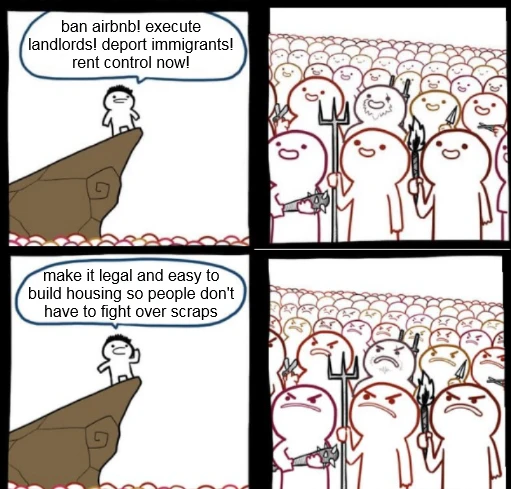this post was submitted on 26 Oct 2024
275 points (81.9% liked)
Political Memes
5383 readers
2754 users here now
Welcome to politcal memes!
These are our rules:
Be civil
Jokes are okay, but don’t intentionally harass or disturb any member of our community. Sexism, racism and bigotry are not allowed. Good faith argumentation only. No posts discouraging people to vote or shaming people for voting.
No misinformation
Don’t post any intentional misinformation. When asked by mods, provide sources for any claims you make.
Posts should be memes
Random pictures do not qualify as memes. Relevance to politics is required.
No bots, spam or self-promotion
Follow instance rules, ask for your bot to be allowed on this community.
founded 1 year ago
MODERATORS
you are viewing a single comment's thread
view the rest of the comments
view the rest of the comments

I've never met a person actually making that argument, though. I'm certainly not advocating removing building safety codes, only the NIMBY bullshit like exclusionary zoning that was literally designed to keep people of color far away from white people. Even the opening paragraphs of Wikipedia page for the YIMBY movement say it's primarily in favor of removing things like exclusionary zoning and parking minimums:
https://en.m.wikipedia.org/wiki/YIMBY